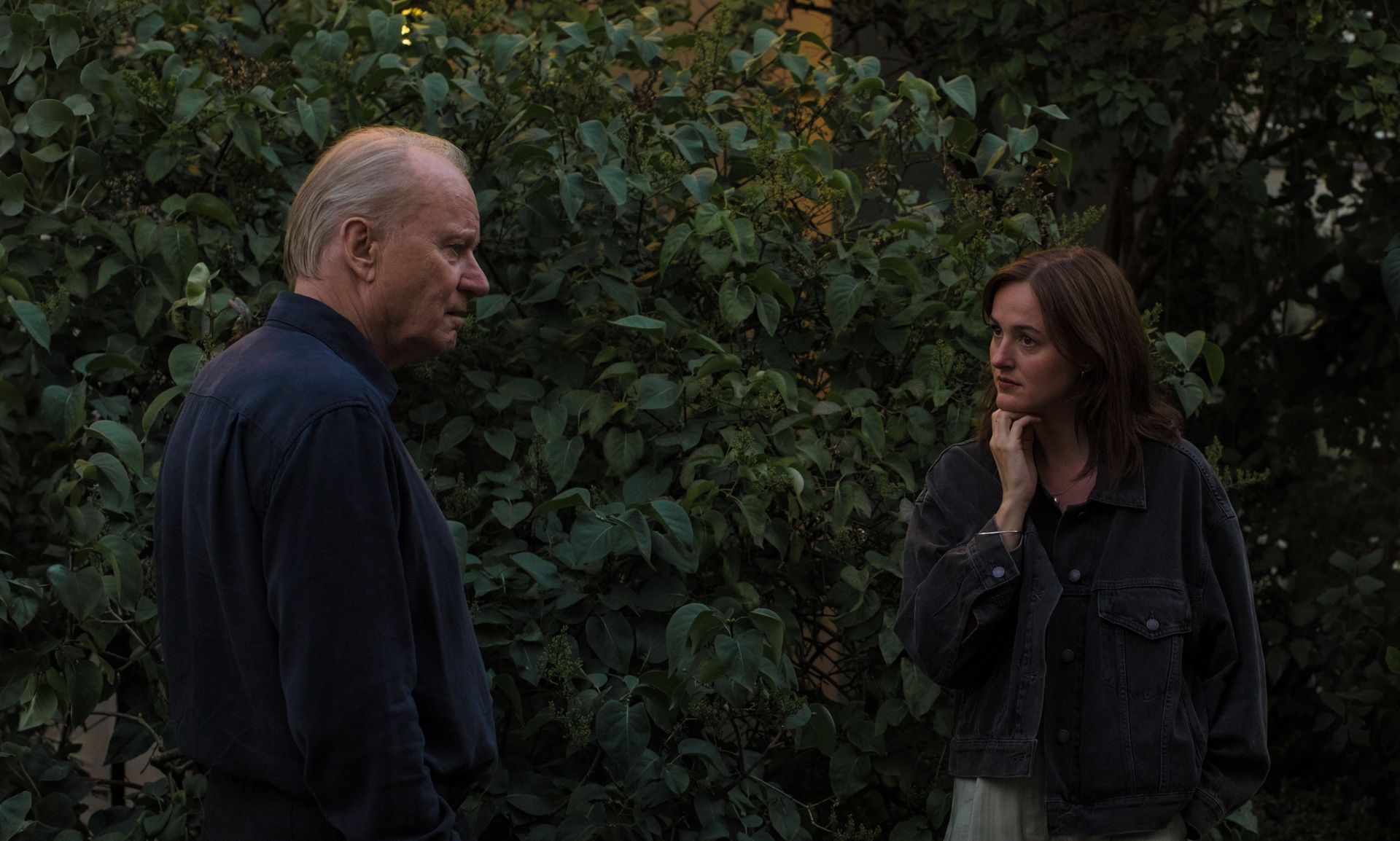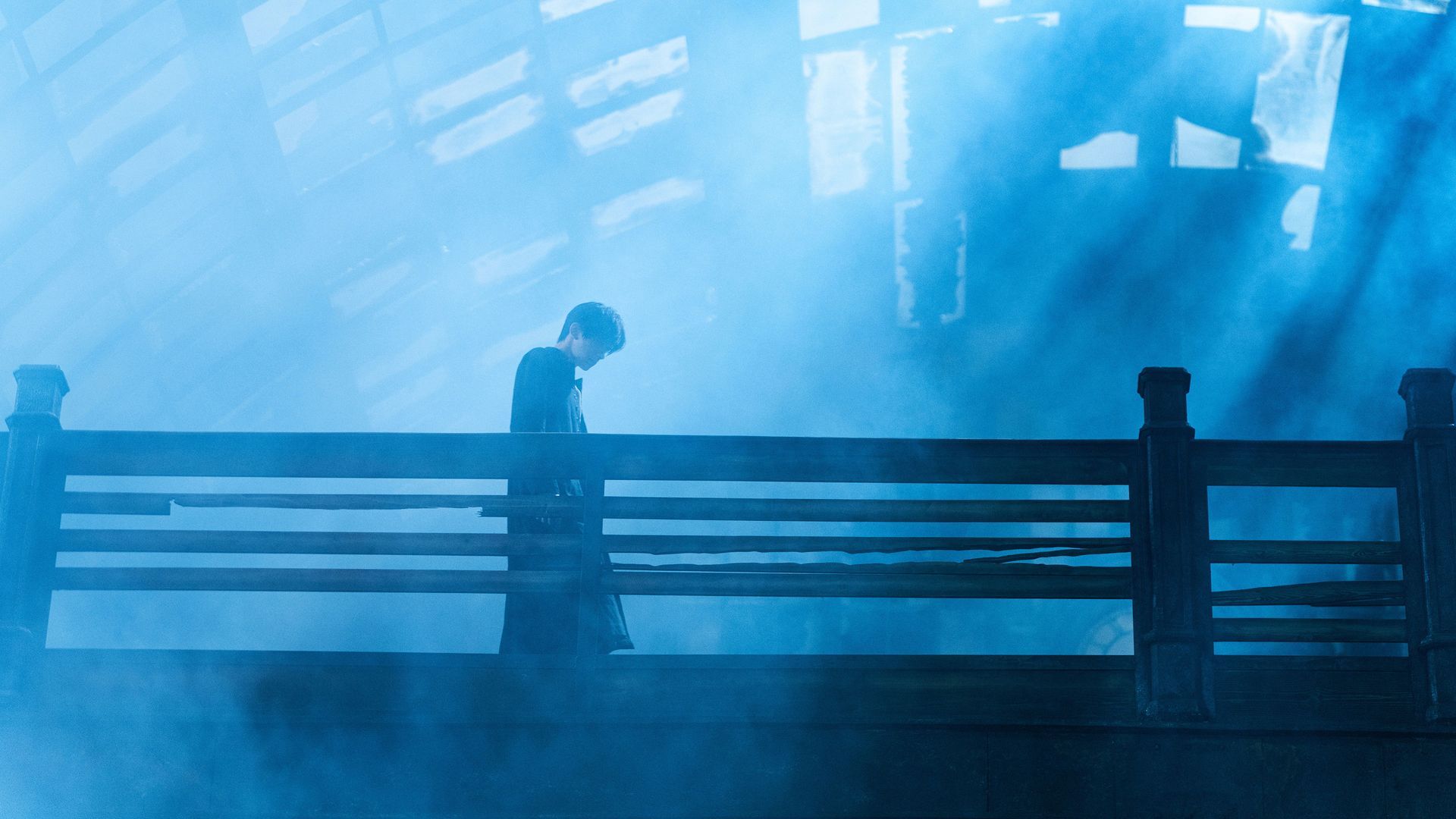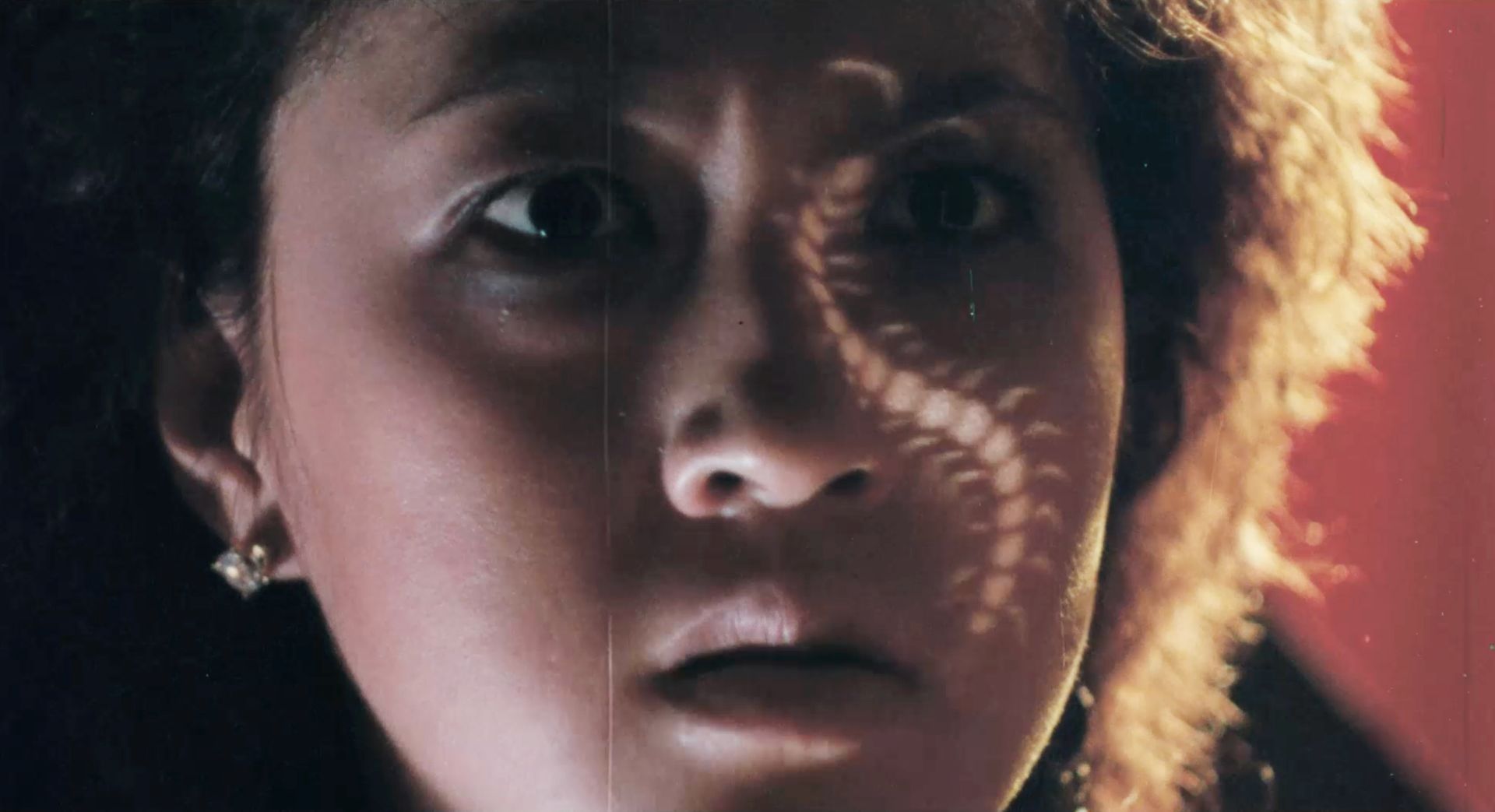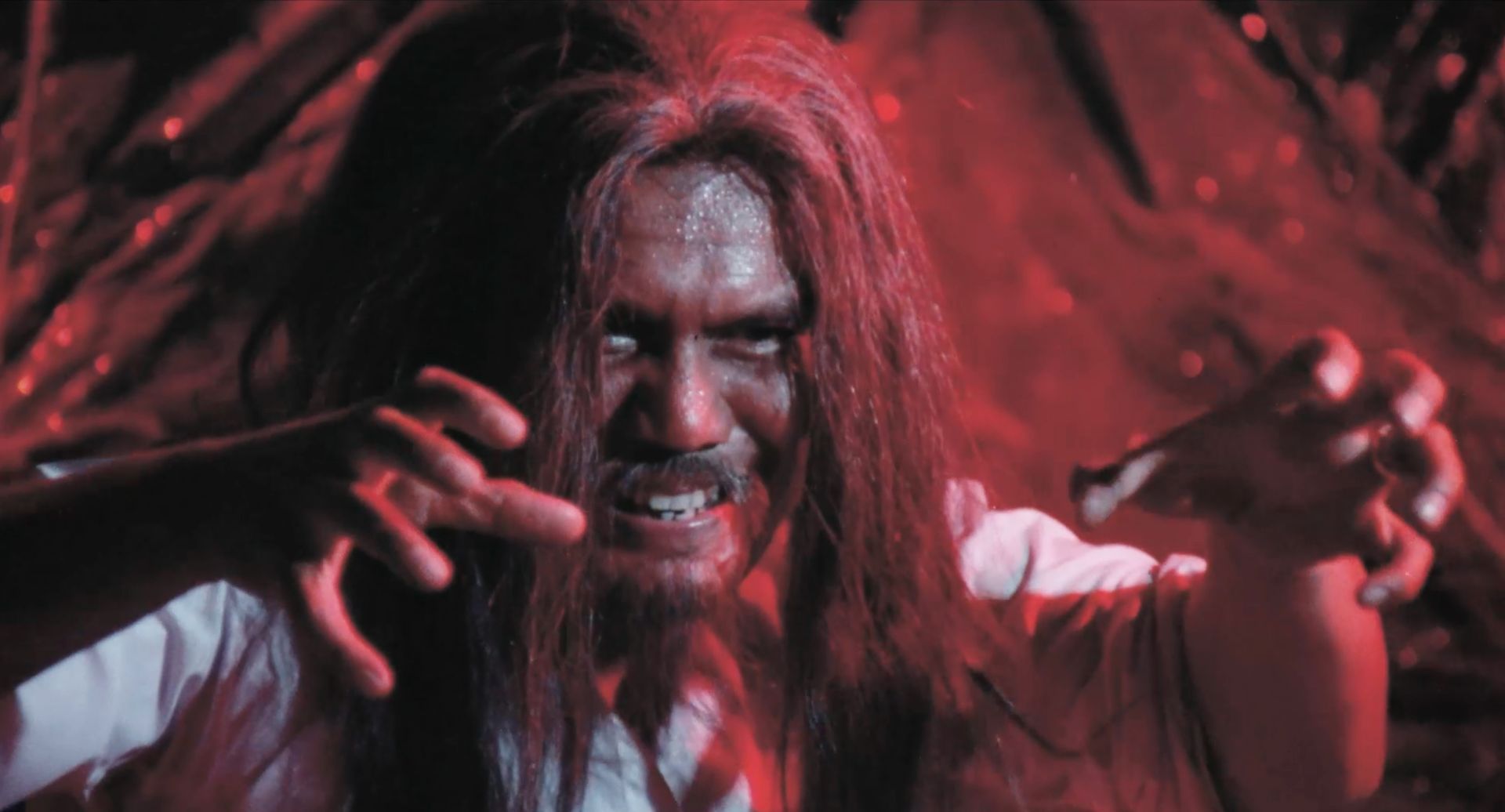Film Review #51: ALL QUIET ON THE WESTERN FRONT
Film Review #51: ALL QUIET ON THE WESTERN FRONT
*This film review may contain plot spoilers, reader discretion is advised.*
At its core, All Quiet on the Western Front is an anti-war movie; take a closer look and one begins to wonder how much credit we can actually ascribe to this goal. An adaptation of the 1929 novel by German novelist and WW1 veteran Erich Maria Remarque, Swiss filmmaker Edward Berger directs a generically sturdy, yet narratively contentious war epic from the standpoint of its losing side — a laudable effort towards pacifism but one that leaves more to be desired.
The film follows 17-year-old Paul Baumer (Felix Kammerer), who enlists in the German army alongside his schoolmates, brimming with dreams of glory and heroism on the battlefield. This is, of course, far from the truth. On his first day on the frontline, the German trenches are shelled and Paul loses one of his close friends. Still dazed from being pulled out of a pile of rubble, he was commanded to collect the dog tags of the dead, confronting the fallout and human cost of trench warfare up close. The film’s condemnation of the waste and inhumanity of war comes rapidly and swiftly, a conclusion that recurs continuously in its two and a half hour runtime.
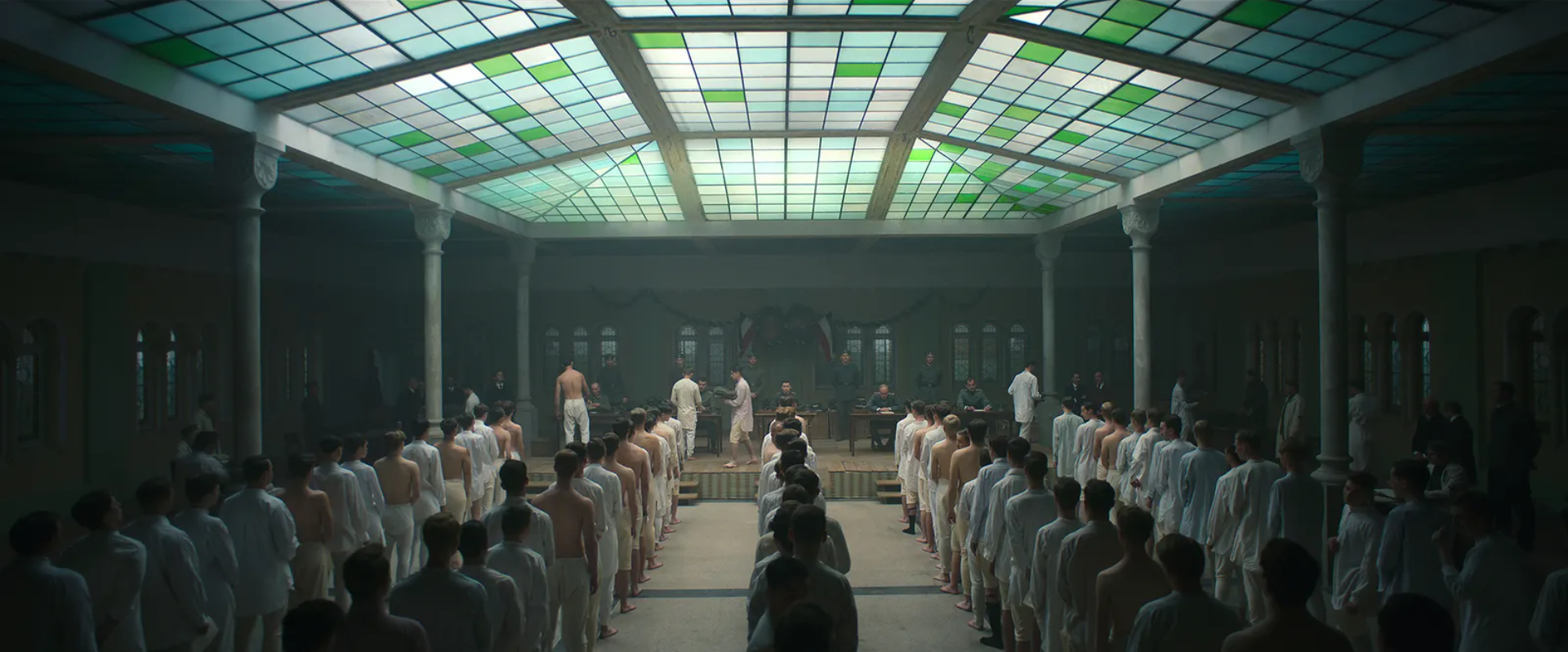
Film still from All Quiet On The Western Front
What striking, decisively anti-war sentiment it generates in its first half hour, however, begins to falter as the film strays from the immediacy of the trenches and into increasingly political dimensions. Vacillating between grimy, bloody scenes of the western front and the luxuriously secure offices of the German Supreme Army Command, the film makes a point of the disjuncture between the so-called “fat pigs” in command and the men actually serving at the front line. It’s a point that unfortunately fails to engender as much emotional investment as it potentially could, perhaps due to the film’s rather speedy pacing, borne from an attempt to conform to the historical timeline of events.
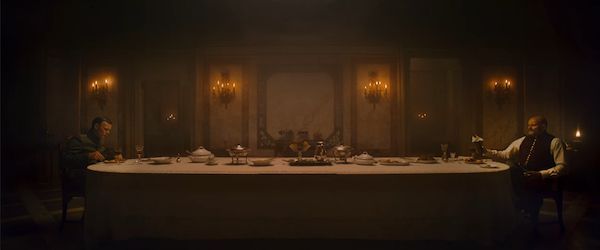
Film still from All Quiet On The Western Front
The real difficulty of All Quiet, however, is its rather black-and-white approach to the subplot of armistice negotiations between the Germans and the French. Here, it is German negotiator Matthias Erzberger (Daniel Brühl) that takes on a humanist, anti-conflict stance against a steely-eyed, uncompromising French General Ferdinand Foch (Thibault de Montalembert), who threatens to extend the war if the armistice falls through. This revised “goodness” of the German side is a choice that does nothing but detracts from the disconnection between the soldiers at the front and the faceless generals and politicians that the film has clearly worked hard to build. Instead, being interspersed with an extended battle sequence where the Germans are practically underdogs against the tank-driving, mercilessly flamethrower-wielding French soldiers, Brühl’s “Good German” push against the French to end the war replaces the narrative force of this disjuncture with an insipid attempt to generate cinematic tension. As we watch Albert (Aaron Hilmer), one of Paul’s best friends, get burned alive in no-man’s-land, the cuts to Erzberger’s armistice negotiations feel less like a crucial event that may end the senseless violence than a distraction from the tragedy at hand.
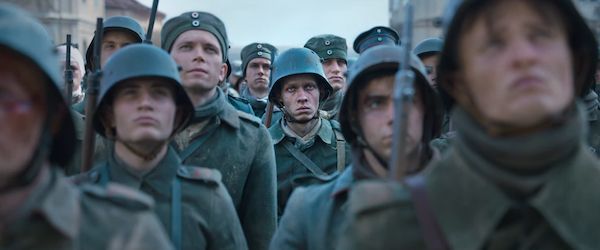
Film still from All Quiet On The Western Front
These narrative issues aside, All Quiet is a well-grounded entry into the world of war films. On their own, the action sequences are gristly, heart-wrenching, and satisfyingly explosive for those looking for a thrilling adrenaline rush. Moreover, the allure and elegance of Berger’s film are undeniable; sweeping shots of the French countryside, winterscapes, and aerial views of an artfully pockmarked no-man’s-land populate the film, a carefully constructed search for beauty in the midst of endless violence. What is most visually interesting about the film is perhaps Berger’s careful use of colour: in the flat sea of brown and beige, what becomes most striking are the whites of Paul’s eyes, the colour of their irises, the hint of pinkish skin beneath the grime, or even the vivid red of a wound. Amidst the violence, we’re directed to look for the scraps of humanity that remain, and it’s these that we cling to if we hope to make it out of the Western Front alive.
For all its flaws, All Quiet on the Western Front is a convincingly acted and visually appealing film. Given a certain benefit of the doubt, the film makes for a commendable entry into the war movie genre; one that finds empathy amidst the grit and gore, and demands the stillness of the Western front for the sake of us all.
——————————————————————————-
This review is published as an extension of *SCAPE’s Film Critics Lab: A Writing Mentorship Programme organised by The Filmic Eye with support from the Singapore Film Society.
About the Author: Goh Yu Ke is an English Literature and Film Studies student at the National University of Singapore. When she’s not reading or busy with school, you can find her working through her watchlist of 1940s screwball comedies.
——————————————————————————-
About the Movie:
Directed by: Edward Berger
Year: 2022
Duration: 148 mins
Advisory: PG
Language: German with English subtitles
Cast:
Felix Kammerer, Albrecht Schuch, Aaron Hilmer
Synopsis: A young German soldier's terrifying experiences and distress on the western front during World War I.
All Quiet On The Western Front is now showing on Netflix.

